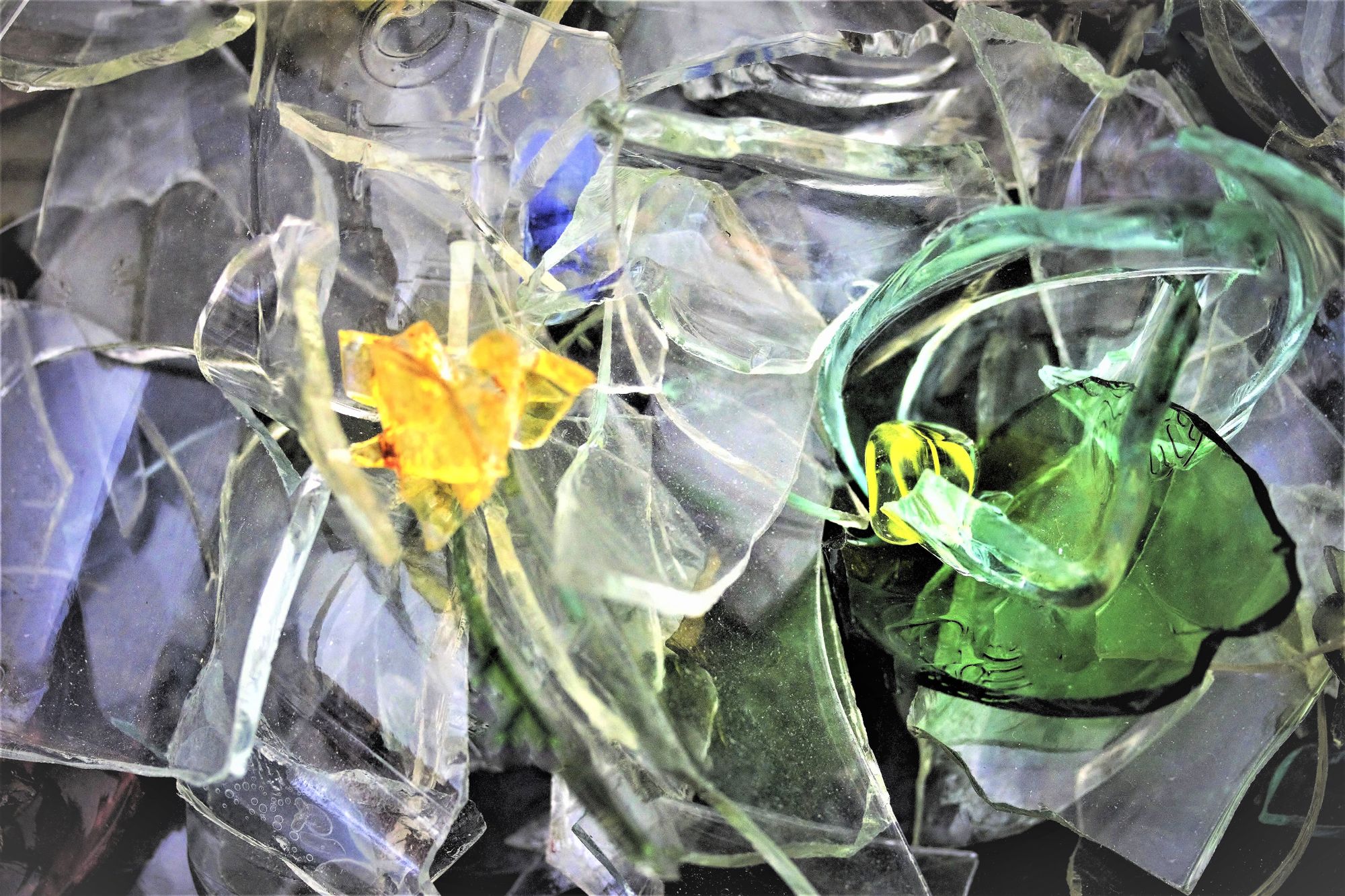In 2019, Chris Lueck — a veteran in the wine industry — got together with a group of like-minded individuals in Walla Walla and decided to do something about the glass waste stream generated by the wineries in the valley. At that time, the city council had decided glass should be landfilled because it was “too expensive to send glass all the way to Portland and Seattle.” That was the moment when Chris started ground2ground, a nonprofit that turns recycled glass into usable sand. I talked to him about his journey and his new co-op initiative in collaboration with the Glass Packaging Institute (GPI).
Despite the fact that glass is less than 10% of our total waste, Chris mentioned several arguments for recycling glass:
- Glass has the unique quality of being able to be 100% recycled and reused as glass.
- Making bottles from recycled glass takes less energy and is a 30% cleaner process than using virgin sources.
- Developing a circular economy of glass in Washington State makes us less dependent on China, which currently supplies glass bottles. This was a problem during the pandemic, and wineries struggled to get their bottles on time.
- There is glass manufacturing nearby with companies like Strategic Materials (Seattle), Ardagh Glass (Seattle), and Brockway (Portland).
Only clean glass has value
When cities decide to send glass to a landfill due to the costs of transportation, it is the contamination that makes recycled glass costly to process. Residential recycling streams have a large chance of contamination, due to residues like peanut butter or olive oil still present in the containers. When glass is part of the ‘single stream’ sorted in an MRF (Material Recovery Facility), 40% to 50% still ends up in a landfill for that reason. Clean glass, however, has a higher value. Even if the colors are mixed, they get sorted by optical color sorters in the glass manufacturing plants before being processed further.
Membership based co-op in WallaWalla
Chris’ new initiative is a monitored dropoff location open three to four hours once a week in Walla Walla. The public will be able to drop off clean beverage bottles for 10 to 15 cents per pound. Wineries with an average of 100 pounds of recycled bottles a week can become members in order to dump larger quantities.
This operation is part of a ‘hub and spokes model’ initiated by the Glass Packaging Institute and is already running successfully in various locations in the United States (Ann Arbor, VA; Chalottesville, VA; Tucson, AZ). Other spokes in Eastern Washington have also agreed to set up 30-cubic-yard containers for clean glass collection. Basin Disposal, with a hub in the Tri-Cities, is the exclusive hauling partner in Eastern Washington, and with the appropriate quantity, is able to either rail or truck it in a cost-effective way to the west side.
The Tri-Cities as the ‘hub’
“It's the last 180 to 200 miles that is really difficult,” said Chris. The Tri-Cities is in a perfect central location; glass collected from wineries around Red Mountain AVA, Benton City, and Walla Walla could be brought here and transported cost-effectively to processors who “take as much clean glass as you could possibly give them.” Chris is hoping to have the spoke and hub system up and running by Memorial Day this year. After trying it out for three months and smoothing out potential problems, it will open up for other spokes to participate.
The wine industry wants to be part of the solution
With 125 wineries in the valley alone, this area generates close to four tons of glass per week. Chris said that instead of complaining about what Olympia is doing, like passing another tax on small winemakers, “Why don't we work together as an industry and find financially and environmentally sustainable solutions to get really clean beverage industry glass to end-use manufacturers in Seattle/Portland?” This would provide wine consumers the assurance that after you drink your bottle of wine, you contribute to a coordinated effort to close a continuous recycling loop. “We have a city council member on board who’s really interested in what we’re trying to do, as well as our public works director,” said Chris, highlighting the fact that initiatives like this will only succeed with collaboration between (local) government and business partners.
Want to participate?
Chris is open to feedback and looking for a Benton City team: vtwineguy@gmail.com

